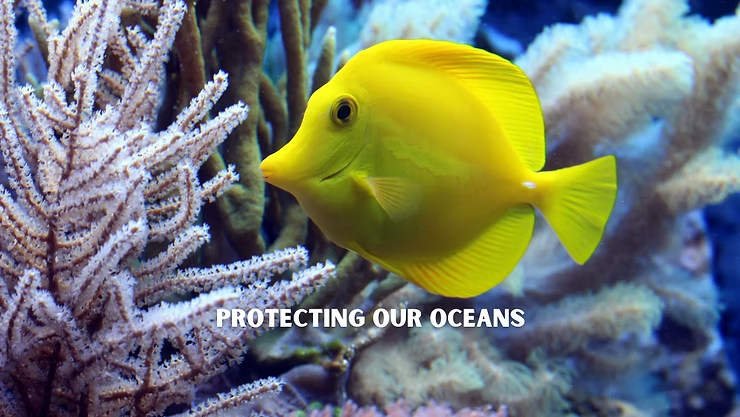Overview
The oceans are the lifeblood of our planet, providing food, oxygen, and countless recreational opportunities. They regulate climate, host diverse species, and sustain ecosystems essential for life on Earth. Yet, pollution, overfishing, and habitat destruction threaten their health. Protecting our oceans requires immediate action through reducing pollution, conserving marine life, and promoting education to ensure a sustainable future.
Current Threats to Our Oceans
Plastic waste, industrial pollution, and unsustainable fishing practices are devastating marine ecosystems. Coral reefs, crucial habitats for biodiversity, are rapidly disappearing. Endangered species face extinction due to habitat loss and overfishing. Without urgent measures, these threats may cause irreversible damage.
The Need for Immediate Action
Addressing these challenges demands reducing plastic and chemical pollution, protecting endangered species, and creating marine protected areas. Collaboration with communities and raising awareness among younger generations are also vital for ensuring long-term sustainability.
Reducing Pollution
Addressing Plastic Waste
Over 8 million metric tons of plastic enter the ocean annually. To combat this crisis, reducing single-use plastics, promoting recycling, and encouraging alternatives are essential. Public awareness campaigns can motivate individuals to adopt eco-friendly habits that protect marine life.
Controlling Industrial Pollution
Industrial waste, including chemicals and oil, causes severe harm to marine ecosystems. Strict regulations, cleaner technologies, and renewable energy adoption are necessary to minimize pollution. Industries must take responsibility to ensure the ocean’s survival for future generations.
Promoting Sustainable Fishing Practices
Overfishing disrupts ecosystems and depletes fish populations. Solutions include catch limits, seasonal closures, and eco-friendly fishing gear. Supporting local fishermen who practice sustainability helps protect marine biodiversity while sustaining coastal livelihoods.
Conserving Marine Life
Protecting Coral Reefs
Coral reefs are critical ecosystems but face threats from climate change, pollution, and overfishing. Solutions include reducing carbon emissions, minimizing pollution, and enforcing sustainable fishing practices to preserve their biodiversity and beauty.
Preserving Endangered Species
Endangered marine species are vital to ecosystem balance. Conservation efforts include enforcing protective laws, creating sanctuaries, and educating the public about their importance. Collective action ensures their survival and the health of marine ecosystems.
Creating Marine Protected Areas
Marine Protected Areas (MPAs) safeguard biodiversity by limiting harmful human activities. These sanctuaries give marine life space to recover, thrive, and reproduce, ensuring the long-term resilience of ocean ecosystems.
Promoting Ocean Education
Raising Awareness
Workshops, beach clean-ups, and social media campaigns raise awareness about ocean conservation. Community engagement amplifies these efforts, inspiring collective responsibility for the ocean’s health.
Educating the Youth
Interactive workshops, field trips, and curriculum integration can instill ocean stewardship in younger generations. By fostering responsibility early, students are empowered to lead future conservation efforts.
Collaborating with Local Communities
Communities depending on the ocean bring valuable knowledge for sustainable solutions. Supporting local eco-tourism, fishing initiatives, and clean-up programs ensures conservation aligns with community needs and livelihoods.
Conclusion
Preserving the oceans requires action at every level—individual, community, industrial, and governmental. At Save Our Blue Ocean, we are committed to raising awareness and funding conservation through our ocean-inspired bracelets featuring turtles, sharks, and whales. Each bracelet purchased supports our mission to protect marine ecosystems. Visit Save Our Blue Ocean | Ocean Gift Malaysia to explore our collection and join the movement to safeguard the future of our blue planet.

